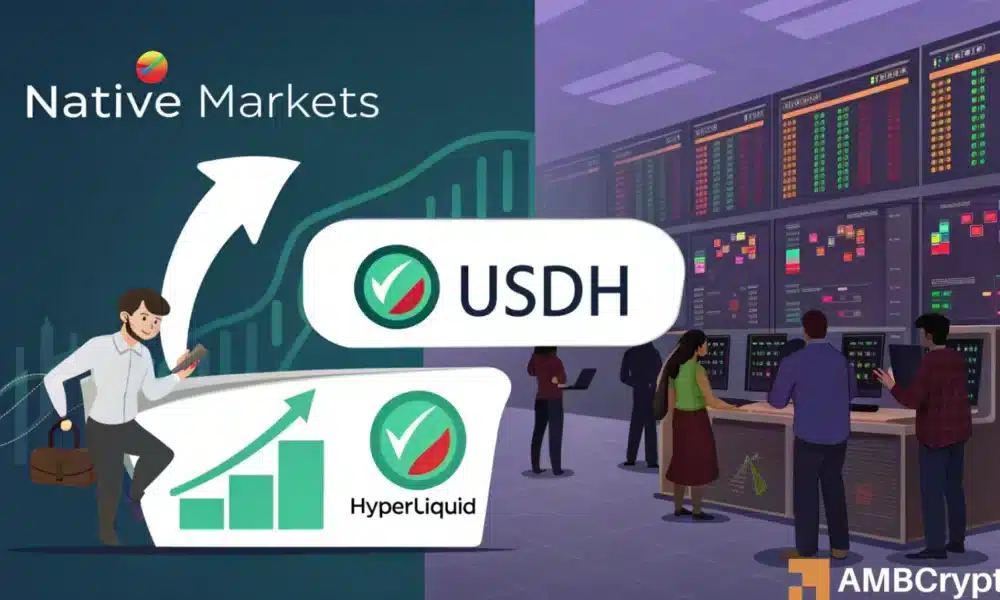Native Markets Secures USDH Stablecoin Ticker in a Major Governance Win
In a significant milestone for the Hyperliquid ecosystem, Native Markets emerged victorious in the competition for the USDH stablecoin ticker. With nearly 70% of validator votes, Native Markets not only secured the rights to issue the USDH stablecoin but also set the stage for its influence within the decentralized finance (DeFi) landscape. This decisive governance vote marks a critical moment for Hyperliquid, reflecting the confidence of its validator community as well as the appetite for innovation in the DeFi space.
An Overview of the Winner
Native Markets distinguished itself by swiftly submitting its proposal for USDH just 90 minutes after Hyperliquid issued the call for bids. This quick action demonstrated their commitment and preparedness, effectively capturing the community’s interest. Max Fiege, founder of Native Markets, communicated their plans via X, stating, “We will be deploying both the USDH HIP-1 and corresponding ERC-20 within days.” Anticipation builds as they prepare for a testing phase that aims to optimize mints and redeems, signaling a promising future for USDH’s role in the Hyperliquid ecosystem.
Competitive Landscape and Challenges
The bidding for the USDH ticker saw Native Markets outpace formidable competitors such as Paxos, BitGo, and Ethena. The competition was fierce, yet despite their strong proposals, Paxos managed only about 20% of the validator votes, while Ethena garnered a mere 3.2%. Notably, prediction markets showed a growing consensus that Native Markets would ultimately prevail. By the end of the week, the narrative shifted significantly towards Native Markets, especially after Ethena withdrew from the race, solidifying their front-runner status.
Governance and Community Response
The Hyperliquid Foundation abstained from voting, placing the decision squarely in the hands of the validators. This governance model highlights an important trend in the DeFi sector, where community participation can significantly influence outcomes. While Native Markets’ win is celebrated, it hasn’t been without controversy. Critics, including Haseeb Qureshi from Dragonfly Capital, voiced concerns regarding the fairness of the selection process, suggesting that validators appeared to prefer Native Markets without serious consideration of alternatives.
Implications for the Stablecoin Market
With the launch of USDH, the stablecoin landscape is set for turbulence, particularly for Circle’s USD Coin (USDC), which has traditionally dominated this sector. However, statistics reveal that nearly $6 billion in USDC reserves remain, indicating its entrenched position in the market. Hyperliquid has reassured users that USDC and other stablecoins will continue to be supported, albeit with certain requirements such as liquidity and stability criteria. As the market watches, the arrival of USDH could reshape trading dynamics on Hyperliquid.
Market Reactions and Future Outlook
The implications of USDH’s launch were immediately felt in the market. Following the announcement, Circle’s shares experienced a notable 16% decline, reflecting investor concern about the competitive pressure from USDH. Recently traded at $125.32, this drop coincides with a broader slump in the HYPE token, which also fell by 1.09% over the last 24 hours. While the immediate metrics may suggest volatility, the forthcoming launch of USDH can stimulate greater liquidity and trading volume within Hyperliquid’s decentralized exchange.
Conclusion
Native Markets’ victory in securing the USDH stablecoin ticker marks a pivotal moment in the evolution of Hyperliquid. This event not only reflects the potential for innovation within the DeFi ecosystem but also emphasizes the importance of community governance. As developers prepare for the rollout and implementation of USDH, the competitive dynamics of the stablecoin market will undoubtedly evolve. It remains to be seen how USDH will influence market behaviors, but one thing is clear: the future of Hyperliquid, buoyed by Native Markets, looks bright. The rise of USDH will undoubtedly offer both opportunities and challenges to established players like USDC, reshaping the landscape of decentralized finance as we know it.


